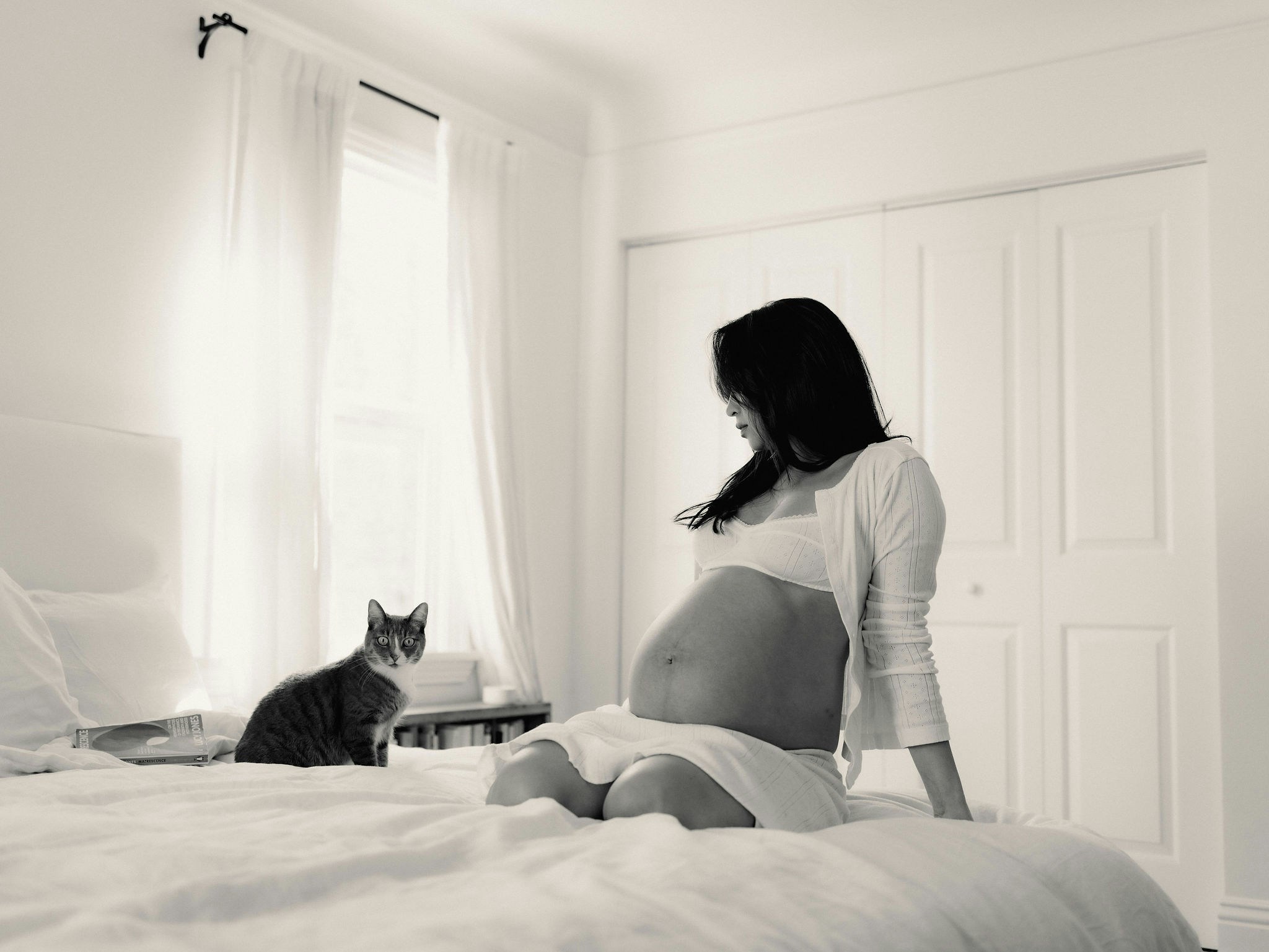
Getting Sticky With Jordan Risa
Photos by Kanya Iwana, Words by AnaMaria Glavan
We love books—reading them, sharing them, especially those about women and mothers. We also love Seen Library, a cozy community that gathers people through pop-ups, book exchanges, drives, and readings. We’re waxing poetic about books, of course, because Jordan Risa’s interview feels like a reflection of her initiative, Seen Library: a gentle invitation to linger.
Jordan is freshly postpartum: her firstborn, a daughter, is three months old. Her experience is unfiltered and raw. She’s in the thick of the postpartum haze, the one that comes with a refrain you hear time and time again—well-intentioned but poorly delivered: you’ll forget.
In truth, that adage only contributes to the lack of care women receive. Birth trauma is rarely recognized as trauma at all, instead touted as a rite of passage every woman is expected to endure. It’s frustrating at best and dangerous at worst.
Below, Jordan reflects on the future of Seen Library, the surreal feeling of being called “mom” by both peers and strangers, and the delayed maternal bond. And then there’s the moment every new parent dreads: when a nurse cheerfully says, “See you for the next one,” and all you can think is: Are you fucking crazy?
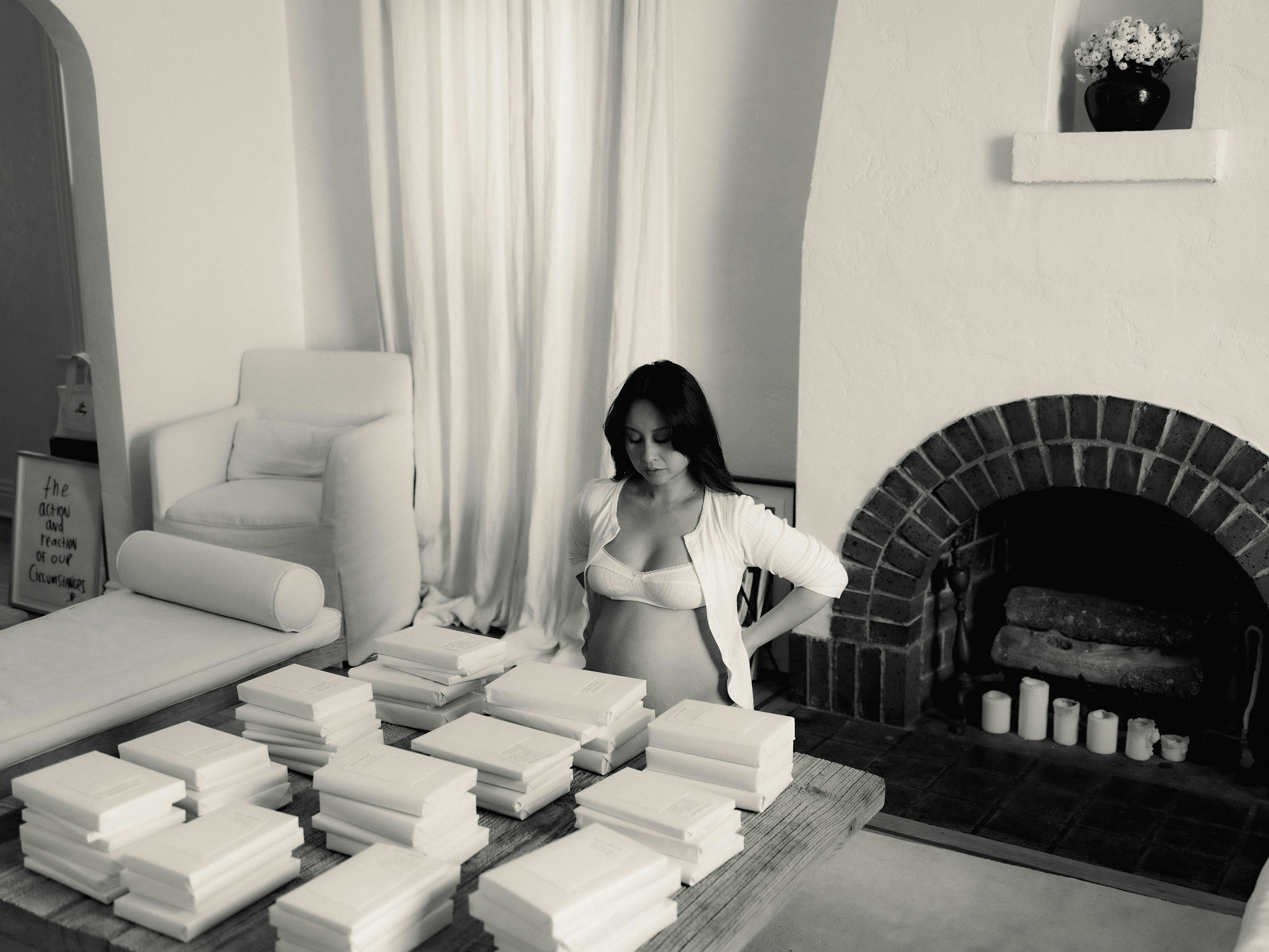
Posh Spice: the Gucci dress and the four kids, too
I used to joke that I’d want four kids, like the Beckhams, three boys and one girl. When I got married, though, I realized I was actually terrified of having children. I also became aware of how much my perception of my own mom influenced me. I saw her working three jobs, sacrificing so much, and coming home exhausted only to help us with homework, cook, clean, and discipline us. My dad, by contrast, got to be the fun one: taking my brothers to practice, tucking us in, telling bedtime stories.
Now that I’m older, I see my mom differently, and I don’t want to wait until my child is grown for her to see me differently. I also told my husband that if we had kids, I didn’t want to repeat that dynamic—him as the fun dad and me as the disciplinarian. He’s a soccer coach, so it would be easy to fall into those roles, but I wanted us to be equal partners from the start.
What’s scary about motherhood: “everything”
I’m not an overly excited person in general, and I felt hesitant to share my pregnancy news. Part of that was knowing friends who had experienced loss, and part of it was fear because you never know what could happen. People would respond with so much excitement and I’d just feel awkward. I was grateful and happy but I was also scared.
People asked me what I was afraid of exactly, and honestly, it was everything. I was terrified of being pregnant, terrified of giving birth, terrified of losing independence. I thought I’d be sick the whole time, because I usually get sick from everything. My pregnancy was okay (until it wasn’t) and yet, I was still scared.
And beyond that, I was scared of the role itself. I grew up watching women in older generations—my mom, my aunts—sacrifice so much. I know parenthood requires sacrifice but the glorification of that scared me. I’m a very independent person and my husband and I had a really good life. Part of me wondered: do we change something that isn’t broken?
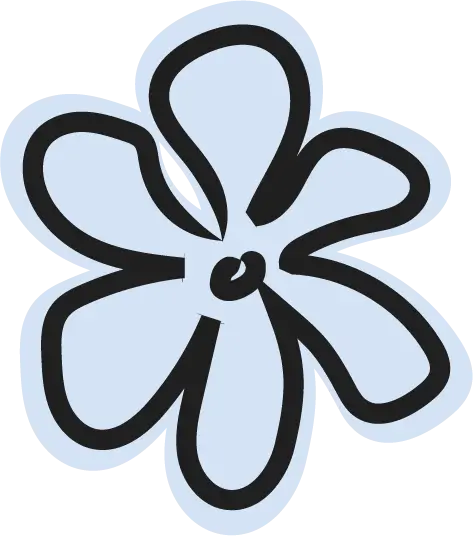
"People asked me what I was afraid of exactly, and honestly, it was everything. I was terrified of being pregnant, terrified of giving birth, terrified of losing independence. I thought I’d be sick the whole time, because I usually get sick from everything. My pregnancy was okay (until it wasn’t) and yet, I was still scared."
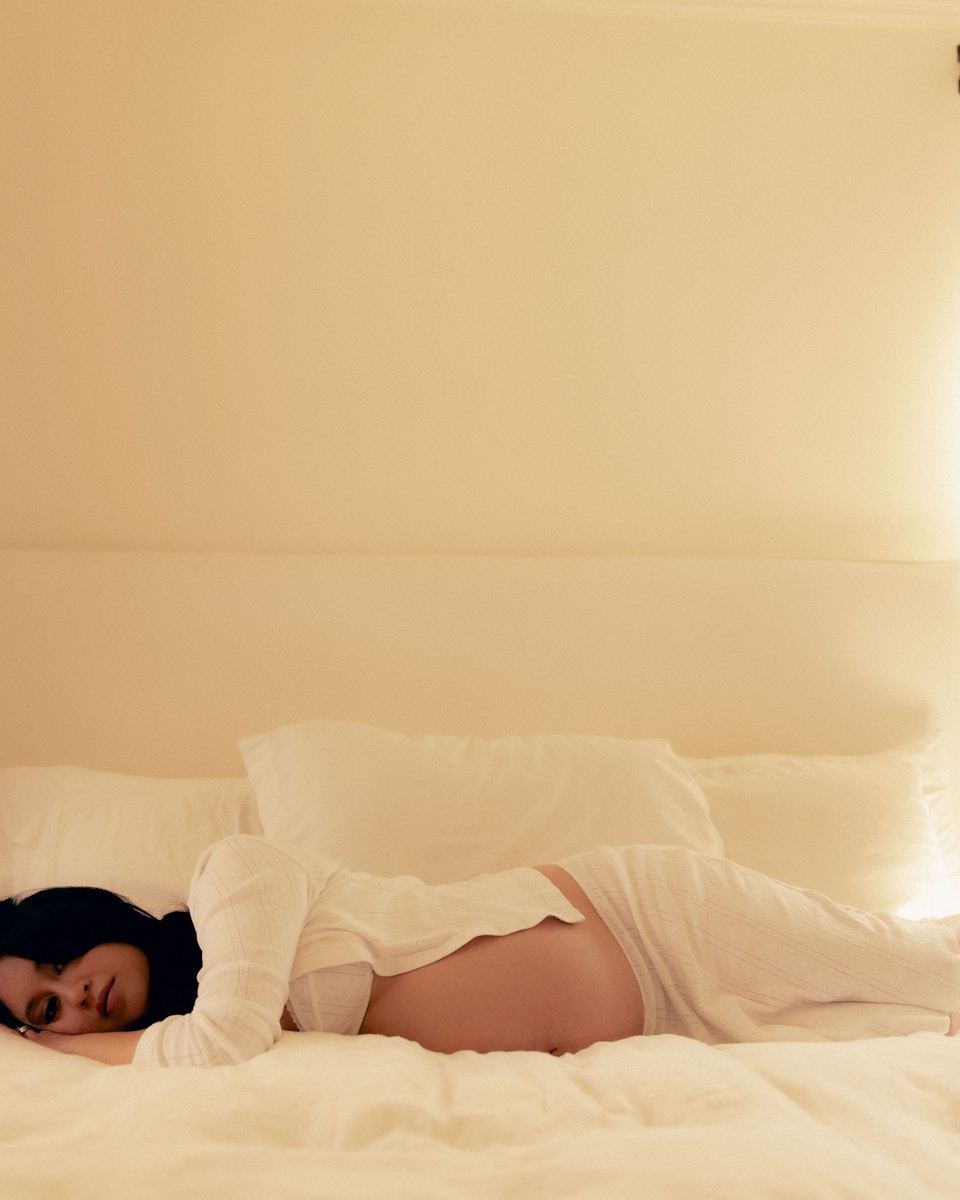
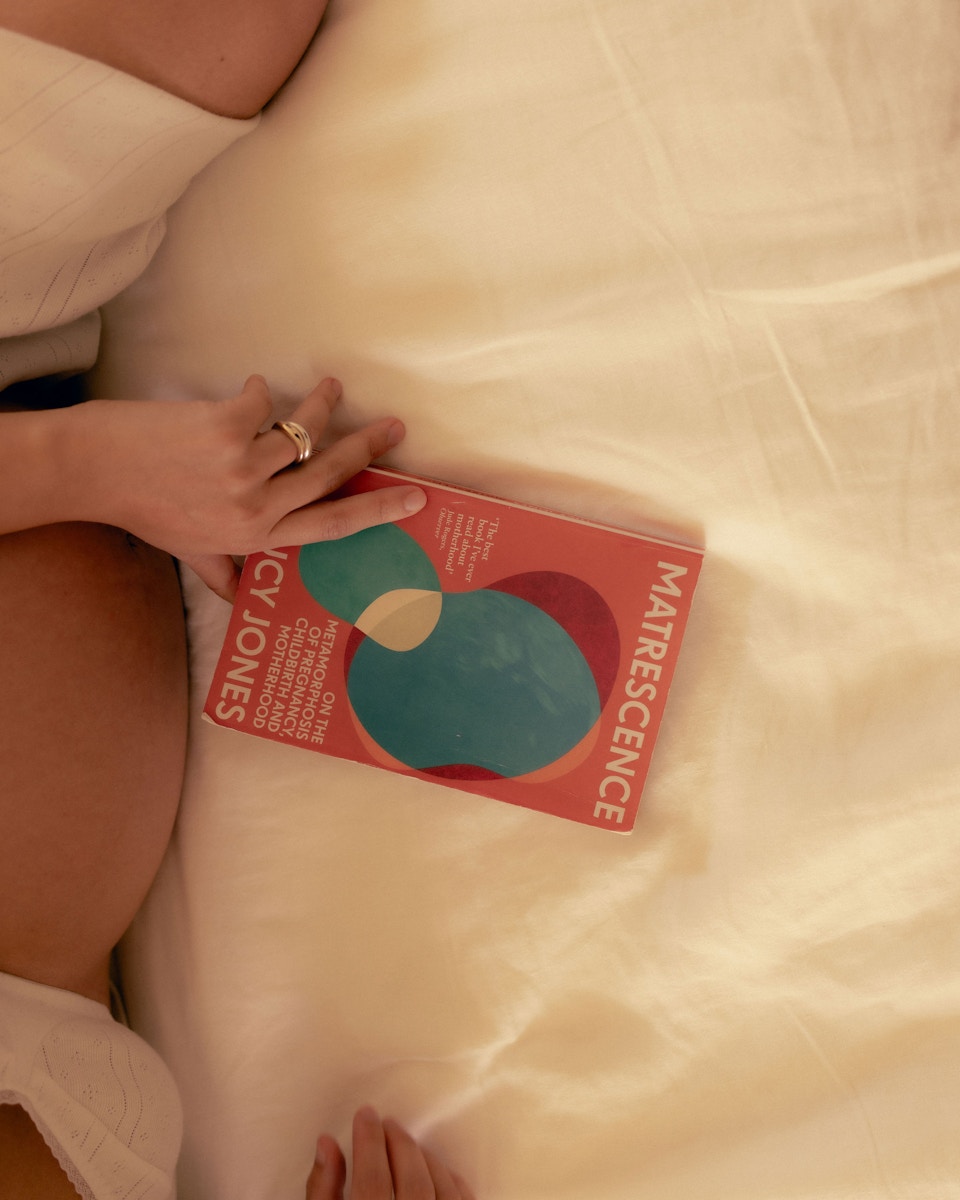
The good birth stories are important, too
My friends my age—when I’d talk about my fears of motherhood—would say, Oh, you just do it. People have been doing it for years. And then you end up feeling like you’re the only one, like the only freak who has these fears and thoughts.
I told my therapist I was reading this book called Regretting Motherhood and she asked why I’d read something like that. But reading it pushed me more toward wanting to become a mom. It laid out everything women needed, lacked, or wished they’d had more support in. As I read, I realized that I do have a strong support system, I do have a helpful husband. And that made me think: maybe I could do this, because I have these things that may be hard to come by.
One conversation that stands out most was with my friend, a mom who owns a beautiful art gallery. We were talking about motherhood, and she told me there is no “better.” Her life without her child would have been amazing and her life with her child is equally amazing. It’s not better or worse, it’s about choosing what you want to experience in life. That really shifted my mindset. I’d always thought of motherhood as something you might regret, like you’d look back and think your old life was better. But reframing it as simply different, not better or worse, blew my mind a little.
I think so much of pregnancy, birth, labor, and postpartum lacks nuance and compassion. Everything is presented in extremes: either it’s awful or it’s magical. What helps is creating space for the full range of stories—the good and the hard—and not dismissing people’s fears when they share them.
I love hearing good birth stories. My high school best friend and my cousin both had easy births, and they almost felt bad saying it out loud. But I think people should be able to share that too—that it was beautiful, that it was wonderful. We need those stories just as much as the hard ones.
"I love hearing good birth stories. My high school best friend and my cousin both had easy births, and they almost felt bad saying it out loud. But I think people should be able to share that too—that it was beautiful, that it was wonderful. We need those stories just as much as the hard ones."
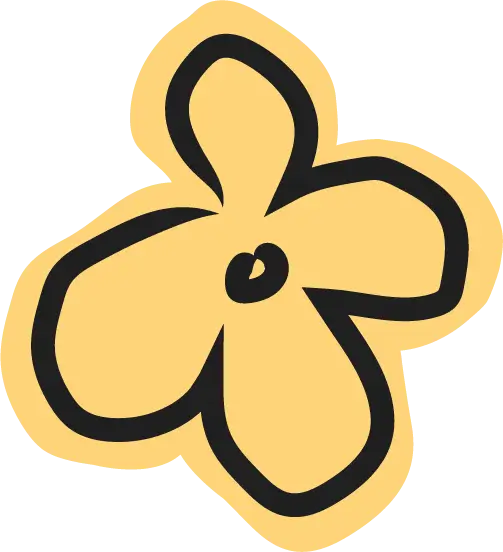
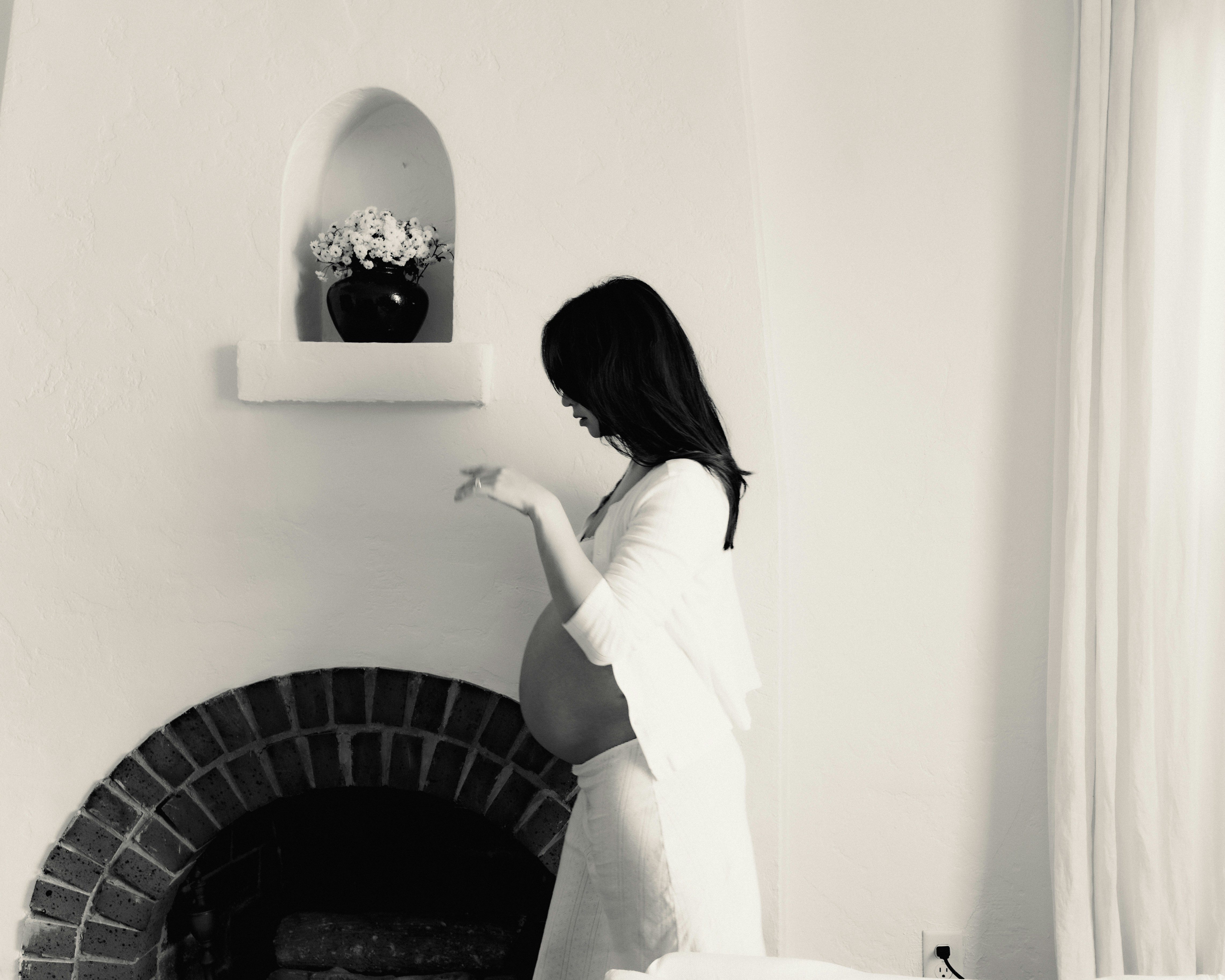
“See you for the next one!” You just cut through six layers of my body
I went through 53 hours of labor, which was wild—and yes, I feel validated in my resentment about how oversimplified pregnancy and birth are often made out to be. I remember feeling like I wanted to be mad at someone. I couldn’t be mad at my baby because it wasn’t her fault. I couldn’t be mad at myself or my body. I couldn’t be mad at the doctors because they did their jobs. I realized I was angry at the people who had dismissed my fears and told me it was going to be beautiful and amazing. I remember sitting in the hospital bed thinking, They are all fucking liars. And even though part of me had known it, another part had wanted to believe them. I held a lot of resentment.
And even after birth, it continued. I was hunched over, holding my C-section area, my legs swollen like tree trunks from all the fluids, literally limping out of the hospital room, and the nurse said, See you for the next one. I thought: Are you fucking crazy? And then she said, Don’t worry, you’ll forget. My mom had said the same thing too. I know it’s not ill-intentioned and that it’s meant to make you feel better. And honestly, now that I’ve mostly recovered, it’s true your body heals, the physical pain fades, and even the mental pain softens.
But I don’t think telling women that they’ll forget actually helps. If anything, it dismisses what they’re going through at that exact moment in time, which is when they need the most support.
So many people say this process is the most natural thing in the world, that our bodies were made to do this, that women have been doing it for thousands of years. And yes, that’s true, but lots of women and children have also died in the process.
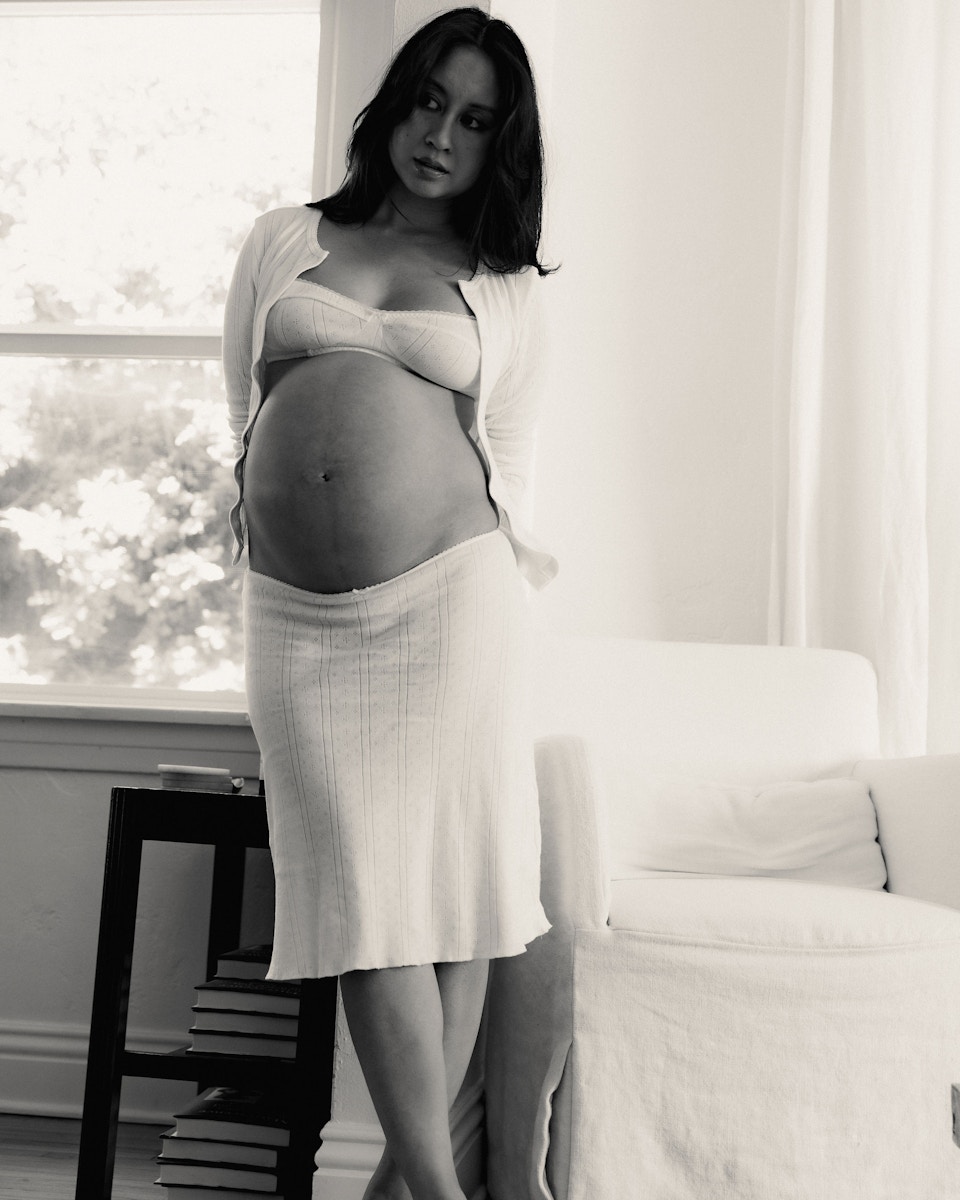
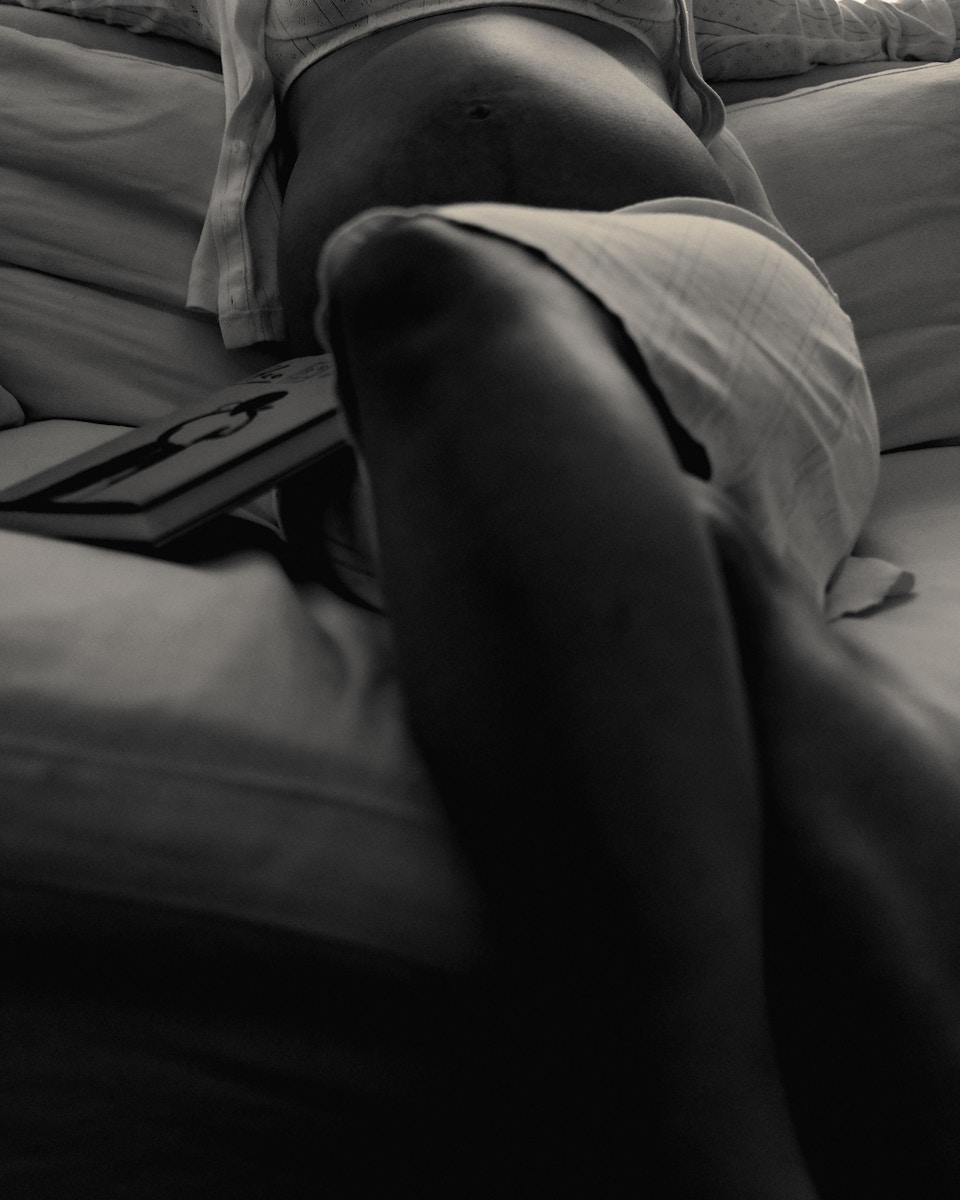
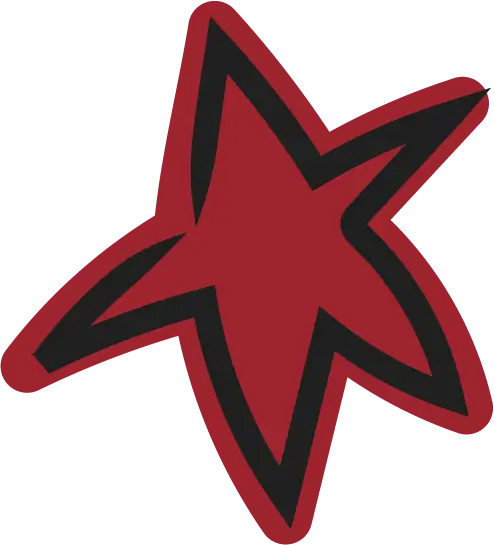
" I remember feeling like I wanted to be mad at someone. I couldn’t be mad at my baby because it wasn’t her fault. I couldn’t be mad at myself or my body. I couldn’t be mad at the doctors because they did their jobs. I realized I was angry at the people who had dismissed my fears and told me it was going to be beautiful and amazing."

Realizing your mom is more than just “your mom”
Growing up, I mostly saw women in my family through a flat identity—just as mothers. I didn’t realize they had hobbies or interests until I was older. Only recently have I learned that my mom loves to travel, that she’s obsessed with Bridgerton, that she loves to bake. I wish I’d seen that when I was little so I could have had a fuller appreciation of who she was. That’s something I hope to give my daughter from the beginning.
My mom has stepped in so much to help me. Even after a full day of work, she’ll come over, hold my daughter, tell me to eat or take a walk, and encourage me to rest. It’s like an unspoken thing, I know she knows how hard it is, and this is her way of showing it.
My mom mentioned her own mom being there for her when she became a new mom, and it feels good to be part of that lineage—a mother caring for her daughter as she becomes a mother. I know that if my daughter ever chooses to have a child, I’ll do the same. I’ll be the one coming over at 6 a.m. so she can sleep while I take care of the baby.
On the future of Seen Library
Seen Library started because I’d been working in social media for over ten years and felt something was missing. Social media shifted from connection and curiosity to optimization and promotion, and I was craving that connection again. I scaled back on work and started hosting little book gatherings in parks. At first it was just five of us, mostly cousins and friends. Everyone would wrap a book, write clues on the wrapping, and we’d exchange them and share which parts resonated. Then more people became interested and I opened it up to friends of friends, then strangers started DMing me to join. That’s how it grew.
Now, I host public book gatherings where people can reserve spots. I do a big annual pop-up and sometimes mini pop-ups in places like New York and London. I’ve organized volunteer events like reading to kids, hosted book drives, and done book givings at my old high school. One of my favorite things has been seeing friendships form. There’s a group of five people who met at the very first public gathering and are now best friends. They go to each other’s weddings and birthdays, and they still come to nearly every Seen Library event.
My friend Halleta suggested: what if we hosted a gathering specifically around womanhood—whether that includes motherhood or not? That really interests me, because I’ve been in that space of asking myself, Do I want to become a mom? I want to be the friend who welcomes both decisions. I think Seen Library could do that through books, not in a heavy-handed way, but in a way that naturally invites those conversations. Spaces for mothers exist, but what about spaces for women who are still deciding, or for those who decide not to?
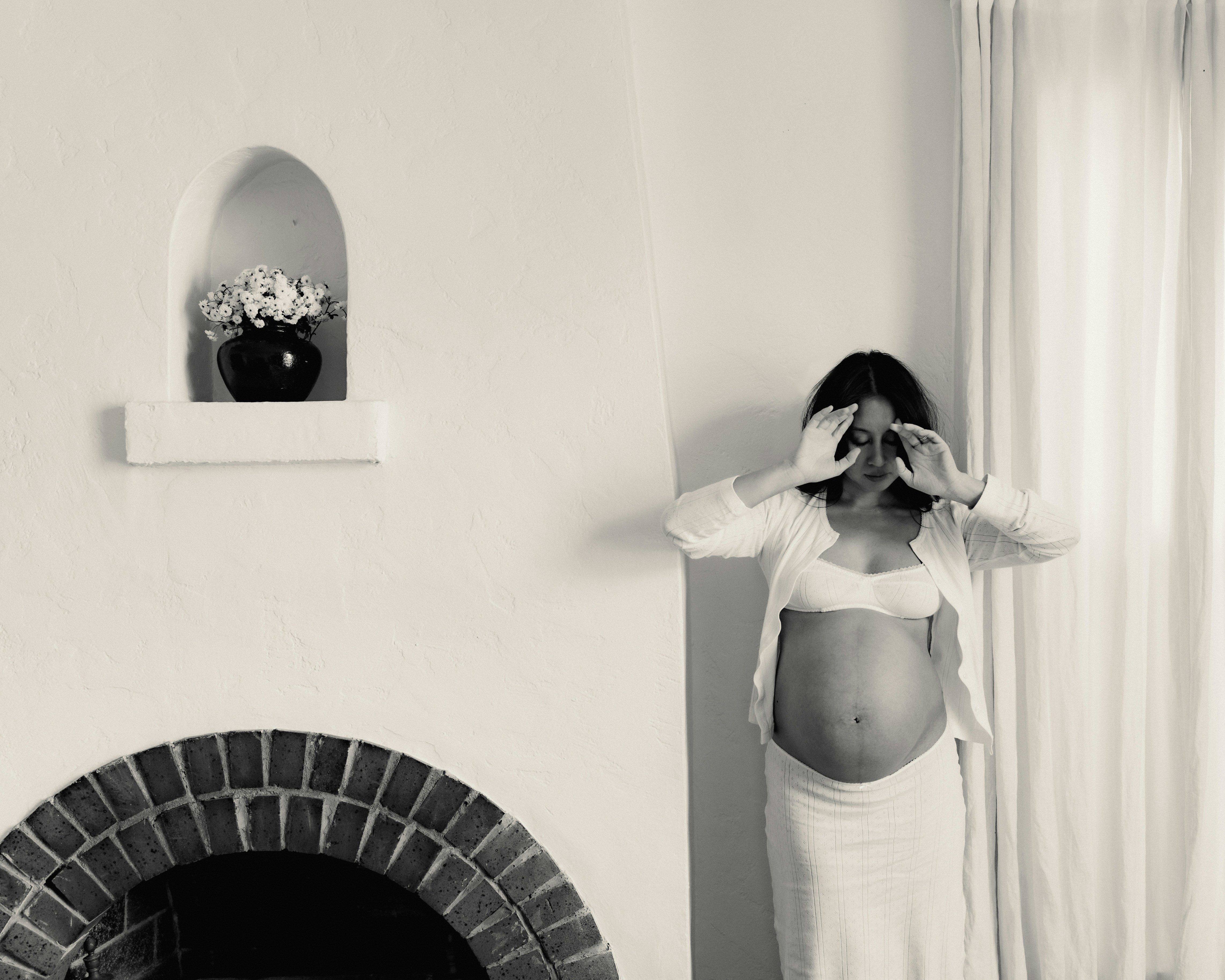
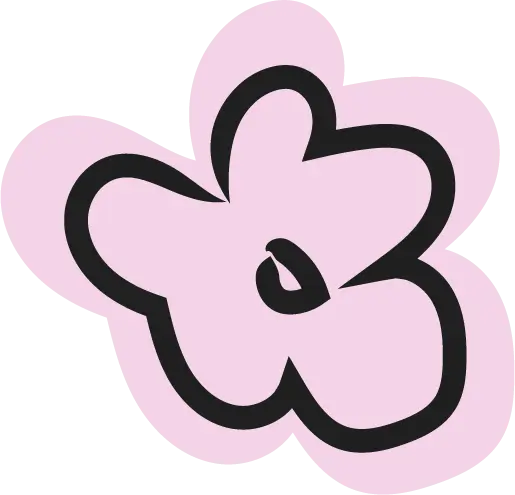
"Growing up, I mostly saw women in my family through a flat identity—just as mothers. I didn’t realize they had hobbies or interests until I was older. Only recently have I learned that my mom loves to travel, that she’s obsessed with Bridgerton, that she loves to bake. I wish I’d seen that when I was little so I could have had a fuller appreciation of who she was. That’s something I hope to give my daughter from the beginning."

Trauma is trauma, and all trauma should be treated with empathy
When I shared my pregnancy and labor story on Substack, I was blown away by the response. So many people reached out to say they had similar experiences. I’d read that one-third of women experience birth trauma, and suddenly, that statistic wasn’t just a number. It’s women you know with full-bodied experiences they’ll carry forever. It was mind-blowing to realize how many of us have lived through something like that. If so many people are having these experiences, then we need that much more support—from society, from our government. The fact that there’s still no nationwide paid family leave is insane.
That’s where the whole “you’ll forget” narrative harms us. We’re expected to put a smile on and say motherhood is amazing, and when people hear that, they assume we don’t need help, we don’t need paid leave. But everything is connected—how we dismiss women’s pain, how we ignore the nuance, how we make people feel like they should just get on with it.
It’s wild, because people validate trauma in other contexts and painful experiences. But when it comes to birth or motherhood, people say, That’s not trauma, that’s just motherhood. And it is trauma. Why aren’t there laws in place to support that?
Oh, that’s right, I’m a mom now (!?)
That idea that you fall in love with your baby right away and it all instantly feels worth it… I didn’t feel that way at all. For a second, I even wondered if I had made a mistake. It was so weird. By the time she was born via C-section, I was so out of it, and because I didn’t feel or see her come out of me, I felt detached from the moment.
The hospital stay added to that disconnect. Being in a strange room, cut off from the outside world, it felt less like life and more like a project. It was like the real Jordan was still outside enjoying her old life while this other version of me was stuck inside recovering from major surgery with a screaming baby and strangers coming in and out. Just very weird.
Even now, when people call me mom, I sometimes think they’re talking about my mom or someone else. Then I realize, oh wait, they’re talking about me. It still feels hard to believe she actually came out of me. Sometimes it’s like I’m just taking care of a baby but it hasn’t fully set in yet that this is my life.
I texted my friends asking when it would get better and a couple of them told me that something changes around 3 months. I was skeptical, but now that we're here, I can say that it happened for me, too. Something has recently clicked. Maybe it's because she's laughing and smiling and sleeping more, but I've fallen in love.
We just needed that time to get to know each other. It's a slow, growing love that builds as we trust and discover more about one another.
Looking forward, I want to be a role model for my daughter and show her that she can have layers. I want her to feel confident and encouraged to go after the things that bring her joy and excitement, not just the things she thinks she’s expected to care about. I want to show her an example of a woman who has a layered life. A mom who has a family, and also has hobbies and passions. I want to share those passions with her, bring her along, and encourage her to find passions of her own.